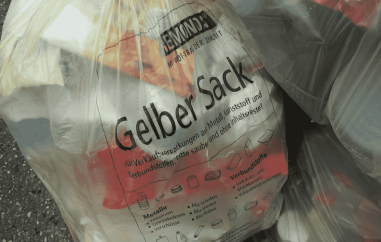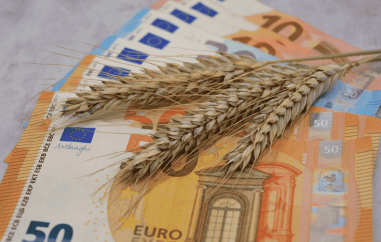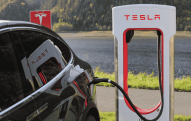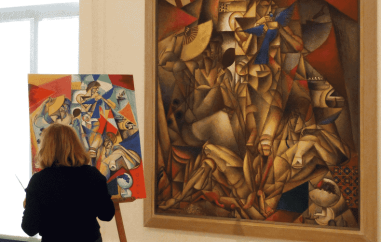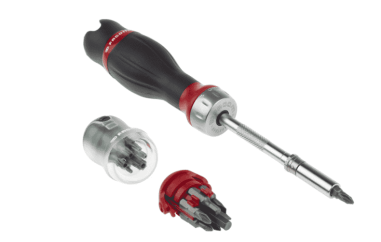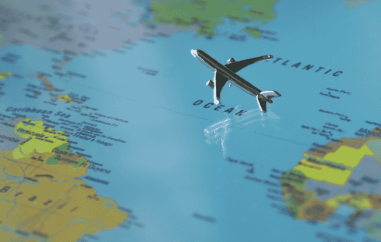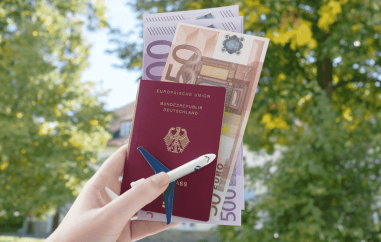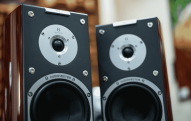Crew Ale, others, moving beer forward in Germany to move it back
Germans Do Beer
The world associates certain things with Germany: fast, well-built cars, sauerkraut, apple-strudel, and of course, beer. There are approximately 1,250 different breweries in Germany-about the same amount that the rest of Europe has combined. Beer tradition in Germany, and especially Bavaria, is over 1,000 years old. Weihenstephan Brewery, a few kilometres north of Munich near Freising, claims to be 'the oldest brewery in the world'. Many Germans, and this goes doubly for Bavarians, also make the self-avowed claim of 'best beer in the world'. But the facts do not back up the latter claim.
With all that tradition of beer brewing, one would think that all types of beer would be convenient and available for mass consumption, but surprisingly this is not the case. In a time of globalization and more choice, the Germans actually have fewer brands of beer to choose from than in any other time in their history. The larger breweries have bought many of the smaller breweries, or have run them out of business with their larger budgets for advertising and sponsorships, or by their better, more efficient distribution networks. Most of the beers today have very little to distinguish themselves from each other. Each brand is made for everyone, therefore in actuality they are made for no one.
Bavarians, who like to think of themselves as a bit different from other Germans in many ways, are in one respect. The beer Bavarians prefer is hardly drunk outside of Bavaria. About 85% of the beer consumed in Germany (and beer consumption has declined dramatically in the last decade) is pils (pilsner). Pils is scarcely drunk by Bavarians at all. Bavarians drink 'helles' (lager) which means light in colour, or a 'Weissbier' (wheat beer) which is normally a cloudy beer with a sweet taste and a fair amount of sediment (yeast) at the bottom of the bottle and is known as the vitamins. If we remove Bavaria's beer drinking statistics from the rest of Germany, then about 95% of all beer that is drunk in Germany is pils. The fact is Germans (Bavarians) only drink German (Bavarian) beer because they believe it is the best, and possibly (probably) it is when speaking about pils, helles or Weissbier. But the world is full of other types of beer.
An Improvement in Choice is Needed
Two guys who are trying to change both the number of varieties of beer on offer as well as improve the beer culture in Munich and Bavaria are Timm Schnigula and Mario Hanel, the owners and brewers of Crew Ale. Early this year they brought their first beer to market which was a normal ale, called simply enough-Crew Ale. A few weeks ago they followed that up with an IPA. Most Germans who drink beer would not know an IPA from an IRA, and these are exactly the people whom Mr. Schnigula and Mr. Hanel would like to reach. IPA stands for 'India Pale Ale', this is the method used to make the beer (an IRA is an 'Individual Retirement Account').
For most Americans who really like beer, not the NASCAR race fans or those who drink beer in stadiums for the buzz, but those who really know beer, IPA's are really big now in the USA. Everybody is drinking them at the moment. A decade ago 'Summer White' beers were popular. These are refreshing crisp beers originally made in Belgium or the Netherlands, but are now made by many small breweries in the USA. Another beer style imported from the Benelux countries that is gaining traction in the USA are the heavier and stronger Doubles or Triples. They are served in glasses that look similar to a cognac glass. Add all of this together and the USA now has the widest selection of beers in the world. Sadly, here in the land of beer, the choices are sparse. "These specialty beers like ales and IPA's make up somewhere around 20% of the US market," says Schnigula. "Here in Germany it's like a half of one percent. We have the best ingredients in the world for making beer and we have to go to Belgium for a Triple? That's just nonsense."
Whenever a German tries Crew Ale the first question invariably out of their mouth is "What's in here?" They always believe there must be some flavourings or additives in the beer.
"Absolutely not," replies Hanel. "All of our beers adhere to the 'Reinheitsgebot' (German Beer Purity Law). We don't add anything extra, just more of the good stuff. Our ale uses about 3 times more hops than a typical Bavarian lager."
Crew Ale's Story
So how did these two guys get into the beer brewing business? Much like the beer they are producing, the story of how they became brewers is, well, for most Germans, very non-traditional. Both Hanel and Schnigula were consultants in a large firm, with secure, well-paid jobs that their family and friends thought was crazy to give up. However, for each of them they realized the job was not fulfilling some inner desire to 'make something'. After returning from sabbaticals at different times to different places, they came together to share their experiences over a beer. After a bit more time and beer they came to the same conclusion; they had hit on basically the same idea at the same time. We should make our own beer. Both had experienced delicious small batch beers, and a mind-blowing number of different types, Hanel in America, Schnigula in Australia. So each figured with their experience and passion, they could make their own 'dream beer' here in Bavaria. From that moment, Crew Ale was born.
"Most Germans think all of the American beer tastes bad. They think that Americans only drink Budweiser or Miller Lite. But America has some really great beers. Sierra Nevada, Dogfish Head's or Russian River consistently win best prize at beer competitions all over the world for taste and other characteristics," says Hanel.
"I know it may be difficult for many Germans to admit, but America is far ahead of us when it comes to beer," continues Schnigula. "Maybe we're where America was 20 years ago, with new and exciting beers poised to enter the market. We'd like to close the gap, have more choices. While America is experiencing a 'Beer Renaissance' at a high level, we here in Germany are actually at the end of a 'Dark Ages' for beer."
Others See the Possibilities
Luckily for the consumer, Crew Ale is not the only ones who have recognized this void. I also spoke with Martin John, head of the Gourmetbier Galerie in Friedberg, near Augsburg, and he reiterated many of the things the guys from Crew Ale said. "Here's a beer, at 10.5% alcohol, which compliments chocolate very well. Now most people don't associate chocolate and beer together. But why not? You have to try it to believe it but it tastes like they were made specifically for each other," says Mr. John. "Here's another that comes in a one-liter bottle and has a cork. It's like a wine. Now I wouldn't recommend this beer before a football match or sitting on a park bench. But perhaps it would go perfectly in winter after a nice dinner with friends or relaxing with a cigar. This beer is a nice compliment for that situation."
So, after all of this, the largest question remains. Are Germans ready to experiment with their beer tastes? They are known as fiercely loyal to their favourite brands and some Germans have been known to forsake all other brands even if theirs is unavailable. In Bavaria this is doubly so. But often brew masters cannot pick their own beer in a blind taste test with only 5 or 6 choices. The guys at Crew Ale and other small local breweries are quite sure the German market is ready. As Schnigula says, "Many of the things that come from America to Germany take 10, 15, or even 20 years to arrive. Here are a couple of examples. Look at the growth of basketball, or that the fact that nearly every pub or restaurant in Munich has a burger on the menu. I never saw cheeseburgers on menus 10 years ago. It's just a question of time, and we think the time is now."
Crew Ale is positioned to be a leader when Germans begin to try other tastes and varieties from the world of beer, where other countries have been for some time. They have plans to build their own brew house/restaurant here in Munich (they are renting out space at another brewery at the moment). And quite possibly the most satisfying thing of all is, as the Germans move forward and try many of these new beers they will in essence be moving back to the more traditional way. Germany will once again have lots of different beers to choose from, for every occasion, made from the finest locally grown ingredients and with a plethora of tastes, strengths and presentations. Taking it back to the way it used to be in the land of beer.













